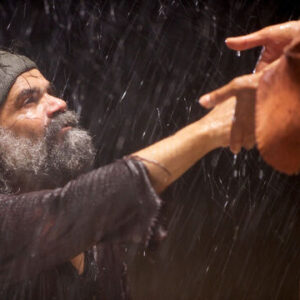Swea ting, increased heart rate, difficulty breathing, an overwhelming desire to run away, and sometimes even the fear of the imminent danger of dying—this is the definition of a phobia. If you have a phobia, you know the panic it can cause. One web site lists over five hundred phobias or extreme fears that people have expressed. For instance, did you know these were real fears?
ting, increased heart rate, difficulty breathing, an overwhelming desire to run away, and sometimes even the fear of the imminent danger of dying—this is the definition of a phobia. If you have a phobia, you know the panic it can cause. One web site lists over five hundred phobias or extreme fears that people have expressed. For instance, did you know these were real fears?
Alektorophobia: the fear of chickens
Alliumphobia: the fear of garlic
Consecotaleophobia: the fear of chopsticks
Arachibutyrophobia: the fear of peanut butter sticking to the roof of one’s mouth
Ereuthrophobia: the fear of blushing
Linonophobia: the fear of string
These might seem extreme, but they are all actual fears that some people have. It seems people can manage to be afraid of nearly anything.
Fear was nothing new to people who lived in Bible times either. In fact, the word fear appears over 250 times in Scripture. The words “do not fear” are mentioned 18 times, and the phrase “do not be afraid” appears 65 times. In the Christmas story, Gabriel told Zechariah not to be afraid. The same angel visited Mary and told her the same thing. Joseph was told not to be afraid to take Mary as his wife, and the angel told the shepherds on the hillside not to be afraid for they brought good tidings. Fear was certainly something that was common to those people. If you ever wondered what God commanded of his people more often than anything else, the answer isn’t thou shall not covet, commit adultery, or kill. The command mentioned most frequently isn’t even one of the Ten Commandments. It’s the command not to be afraid.
One of the boldest and most outspoken of the apostles was Peter. He was a man who seemed to be the ultimate “street fighting” disciple, always speaking his mind and standing firm against every sort of assault. He was the he-man of the disciples, the man whose very name meant “rock”. Yet late one night while fishing on the Sea of Galilee, Peter decided to try something new. Seeing Jesus coming to him by walking on the water, Peter hoped to give it a try himself. He climbed out of the boat and enjoyed instant success, but when he felt the wind whipping his face, his boldness began to fail. The water would no longer hold him up as he began to sink because of his fear. “When he saw the wind, he was afraid and, beginning to sink, cried out, ‘Lord, save me!’” (Matthew 14:30). Peter knew the Lord Jesus was right there with him. He knew help was only a few feet away. He also knew Jesus has power over the wind and waves and that he was safe in the presence of his Savior. Yet despite all of that, his head told him that what he was trying couldn’t be done. He let a speck of fear enter his mind, and it nearly killed him.
Fear isn’t something we can easily dismiss. Children are afraid of the boogeyman. Mom and Dad are afraid of losing their jobs. Others are afraid of illness and dying. Soon, like the Web site, we are putting together a list of five hundred phobias. And none of us escapes them. Why? Why is so much of our joy destroyed by fear? Sadly, our hearts are weighed down by sin. Fear is a fruit of sin. Each of those fears is based on doubt. Although we piously claim that God is in control, we doubt if he can really do what he has promised. And so we become afraid. We become like Peter, looking at the wave instead of the Savior. Our focus becomes centered on ourselves instead of the one who has power and control over everything.
David said it so well in a psalm he wrote after he was captured by the Philistines: “When I am afraid, I will trust in you. In God, whose word I praise, in God I trust; I will not be afraid” (Psalm 56:3,4).
What are your fears today? How will you approach each of them?
